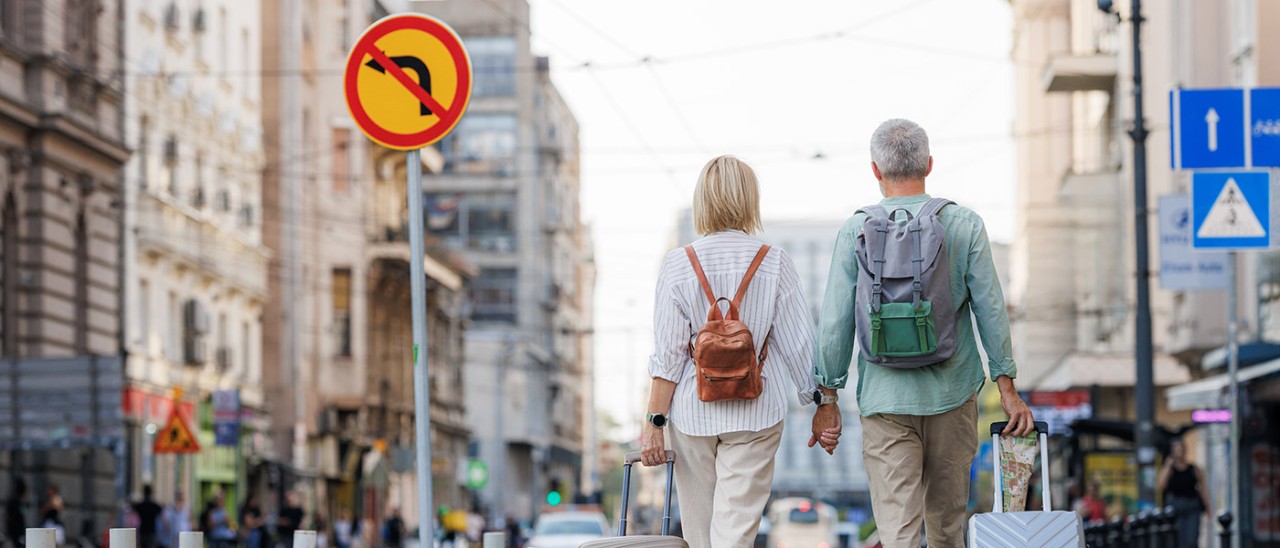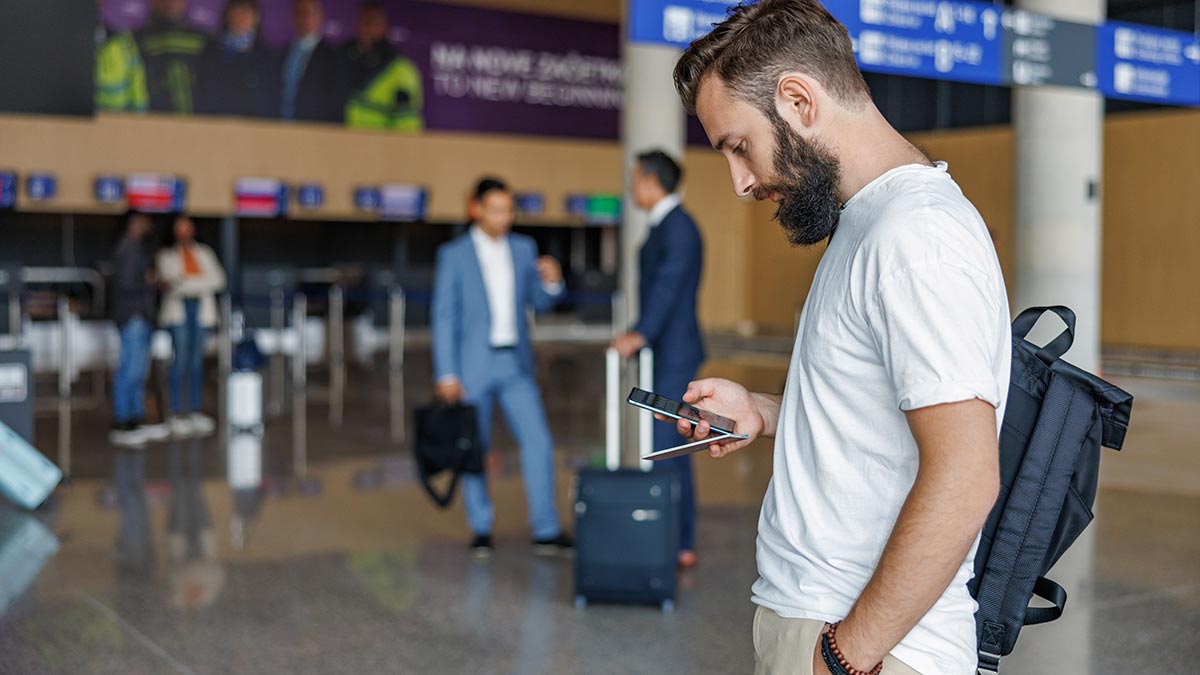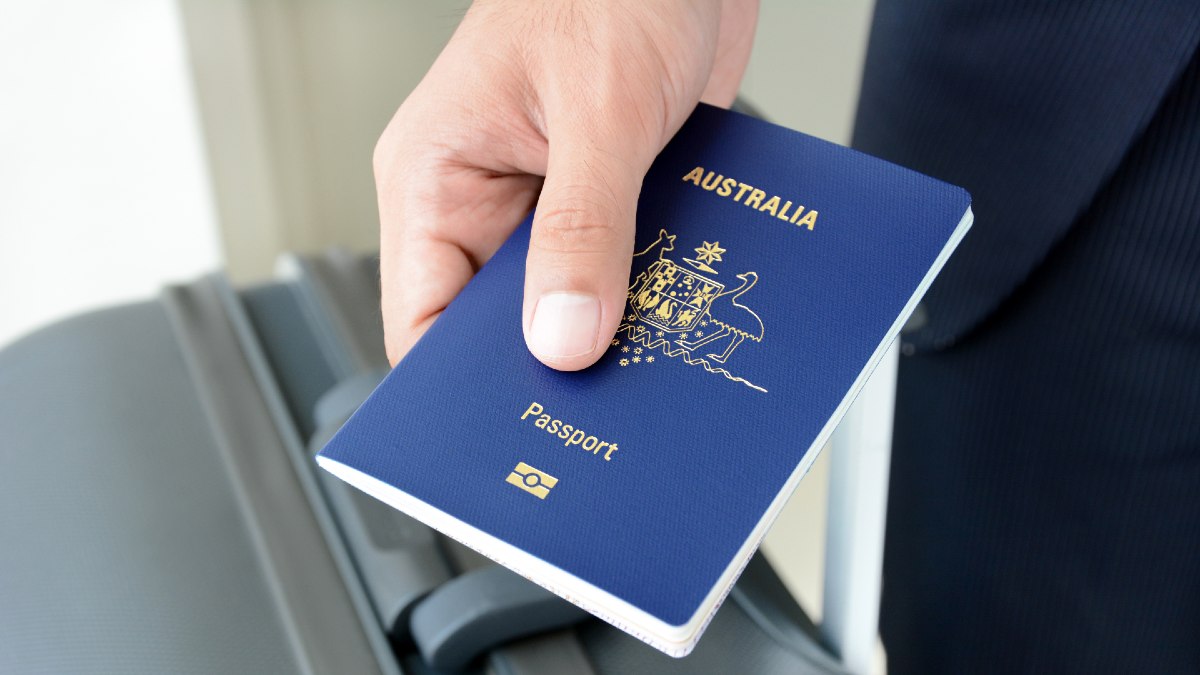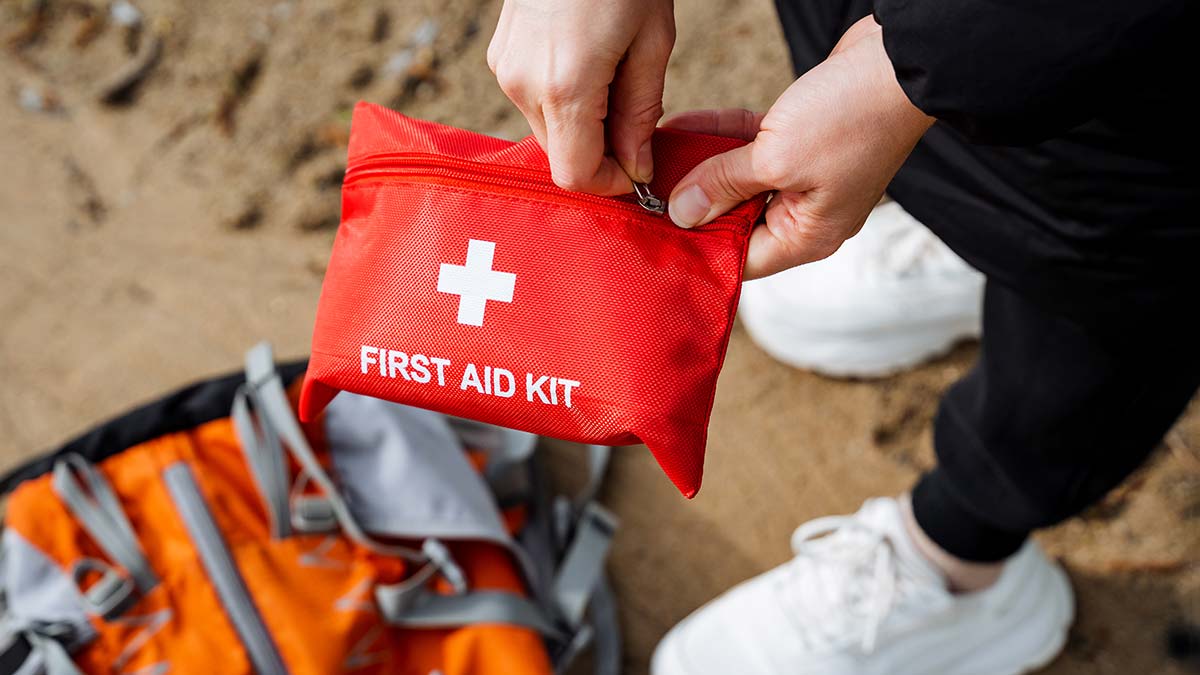Phones are useful travel tools that can be tempting to thieves. Here's how to keep your phone safe while on holiday and what to do if it does go missing.
How travel insurance protects you in medical emergencies and natural disasters while overseas

Find out how travel insurance protects you in medical emergencies and natural diasters when you are overseas.
One of the joys of travel is that you’re venturing into the unknown. Whether you are cruising the high seas, seeing the northern lights, dining in Michelin-star restaurants or staying in luxury accommodation, things can go wrong and when they do, it can make or break your holiday to know that you’re covered with travel insurance.
More: How to stop losing your passport and protect it from theft

If you want cover for flight cancellations, then you need to choose a travel insurance policy that includes it. Image: Getty
What is travel insurance and why do you need it?
International Travel Insurance is an insurance policy that offers protection against financial loss as a result of the unforeseen circumstances.
Reasons to consider travel insurance for international trips include cover for overseas medical and hospital emergencies and unexpected events such as a stolen passport or lost luggage. Depending on your travel insurance policy - there are often policy options and add-ons - you may be able to claim for things such as alternative accommodation, flights or other evacuation transport, meals, new clothes and toiletries or electronic equipment.
Full disclosure of pre-existing medical conditions is crucial when purchasing travel insurance. RACV International Travel Insurance, for example, offers coverage options for travellers with pre-existing conditions subject to medical assessment for conditions, including cardiovascular issues, respiratory conditions, diabetes, and pregnancy. Some conditions may be automatically covered without additional premium, while others require assessment and potential premium adjustment.
There are also options and add-ons to consider when you buy an international travel insurance policy. RACV International Travel Insurance offers a choice of three levels of cover, plus an annual multi-trip option and add-ons, such as a Cruise option and Ski and winter sports cover. See the Product Disclosure Statement for details.
Emergency support: RACV Travel Insurance includes 24/7 overseas emergency medical support for policy holders via its partnership with On Call International. On Call International provides fully customised travel risk and safety management, ranging from overseas medical emergencies to natural disasters and political unrest. Having a calm, friendly contact to guide you through a difficult situation can make all the difference for you when things don’t go as planned.
When a traveller contacts the On Call International Global Response Centre, an overseas Assistant Coordinator is assigned to manage their case. They coordinate with hospitals and doctors in the relevant overseas location, ensuring the traveller's needs are met.
The number to call in an emergency is included in the Product Disclosure Statement.

Keep your passport somewhere safe and secure while you're travelling. Image: DFAT
Questions to ask yourself before you travel
On Call International Chief Medical Officer Dr Michelle Nathan says it’s important that travellers make informed choices about their travel plans. Some questions you should ask yourself:
Am I healthy enough to travel?
Some conditions are associated with a weakened immune system and predispose a person to infectious disease/and or additional health risks.
Is there appropriate medical care in the countries I am visiting?
Travellers with pre-existing conditions should gather medical care information, and consult doctors for referrals. Mental health resources may be limited in remote locations.
What infectious diseases are prevalent where I’m travelling?
Research what diseases you could encounter overseas. Along with COVID-19, diseases such as typhoid, malaria, zika, chikungunya, and rabies are prevalent in countries within tropical and subtropical regions, particularly in Africa, Asia, and South America.
Several weeks before your trip, see a doctor who specialises in travel medicine. They will know what vaccinations you need and give you advice tailored to your specific destination/s.
Should I take a first aid kit with me when I travel?
On Call International says a first aid kit is essential for every traveller. It should include the same things as your home emergency kit, as well as:
- Preventative products such as sunscreen, anti-fungal cream, insect repellent, motion sickness tablets, and lip balm.
- Temporary relief medications such as antacids, throat lozenges, laxatives, antihistamine, and hydrocortisone cream for insect bites.
- Any prescription medicines.
On Call International advises that you keep your first aid kit in your carry-on bag, not your checked luggage. Before departure, check with your doctor or travel medicine specialist if you should add any other medications or supplies to your kit.

A first aid kit is essential if you're travelling overseas. Image: Getty
How travel insurance covers medical emergencies
In an emergency, you don’t have time to stop and think about money. If you’re in an accident or you have a medical episode, you need urgent hospital care. Falling sick or getting injured overseas can be both frightening and expensive. If you don’t have cover, you may face:
- Overseas emergency hospital bills (which can run into tens of thousands of dollars)
- Enormous costs for overseas airlifts or emergency evacuations.
Most travel insurance policies tend to cover:
- Overseas emergency medical expenses
- Overseas hospital stays and surgeries
- Overseas emergency repatriation (bringing you home for treatment).
Tip: Always check if your policy includes 24/7 emergency assistance.
Natural disasters: are you protected?
Many insurance policies exclude natural disasters — like bushfires, floods, storms or earthquakes — so ensure you check the Smart Traveller website for safety warnings. If there’s a "Do Not Travel" warning in place for an overseas destination, you’ll be assuming the risk. If your policy includes cover for “acts of God” and was purchased prior to the event, you may be able to seek compensation for costs incurred due to these overseas events.
If a natural disaster occurs overseas, flights may be cancelled, accommodation may be destroyed, and travel can become difficult and dangerous, and you need to know exactly where you stand with your insurer when you start to make plans to get home.
Depending on your policy, you may be able to claim the following from your travel insurer:
- Trip cancellations or delays caused by natural disasters
- Any additional accommodation or alternative transportation costs
- Lost deposits or non-refundable bookings
Important: If you buy insurance after a disaster is announced, you may not be covered.

Falling sick or getting injured overseas can be frightening - and expensive if you don't have travel insurance.
What to look for in a travel insurance policy
Every insurance policy is different, so you need to compare options and ensure that you purchase cover that is right for your needs.
Some things to look out for:
- Check the dollar limit on overseas emergency medical cover. Policies with low upfront costs may not deliver when it comes to claiming later.
- Natural disaster protection. You won’t be covered if you purchase insurance after an event and some policies exclude natural disasters altogether so make sure you read the fine print.
- Cancellation cover. Be clear about the time frames and circumstances the policy outlines.
- Check if your insurer has a 24/7 emergency hotline. If something goes wrong, you’ll want to speak to someone straight away, regardless of the time zone you’re in.
- COVID-19 inclusions or exclusions. Some areas you might travel to still have restrictions in place so be prepared.
Final tips for buying travel insurance
- Always read the Product Disclosure Statement (PDS). This is a legal document with the terms and conditions of your travel insurance cover. The inclusions and exclusions are clearly outlined within it. Don’t get caught out because you don’t fully understand your own policy. If you have questions, a consultant will be able to answer them.
- Consider buying early — coverage starts from the moment you purchase your policy. As soon as your flights are confirmed, you can protect yourself against unforeseen events like sudden illness (that you or someone you care for experiences). This may include cover for cancellation of non-refundable payments and deposits/payments for accommodation, cruises or tours.
- Tailor your policy to your destination and the activities you are going to be doing. If you plan to go skiing, ensure that your policy includes extraction from remote locations. If you know you’ll be riding a motorbike or moped on your travels, you’ll need to add extra cover for this activity. Cruises also require additional, and specific, cover. You can find out what adventure activities are covered by RACV Domestic and International Travel Insurance via this link.
The information provided is general advice only. Before making any decisions please consider your own circumstances and the Product Disclosure Statement and Target Market Determinations. For copies, visit racv.com.au. Royal Automobile Club of Victoria (RACV) Ltd AR 001243563 is an authorised representative of the issuer and receives commission for each policy sold or renewed. RACV Travel Insurance issued by Tokio Marine & Nichido Fire Insurance Co., Ltd ABN 80 000 438 291 AFSL 246 548. Terms & conditions apply, refer to the PDS.


